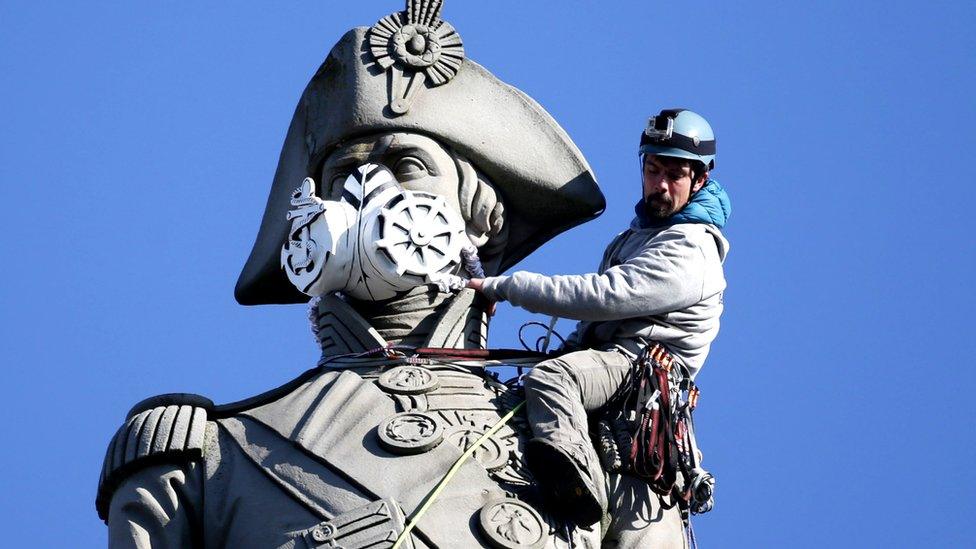Greenpeace activists close British Museum in BP climate change protest
- Published
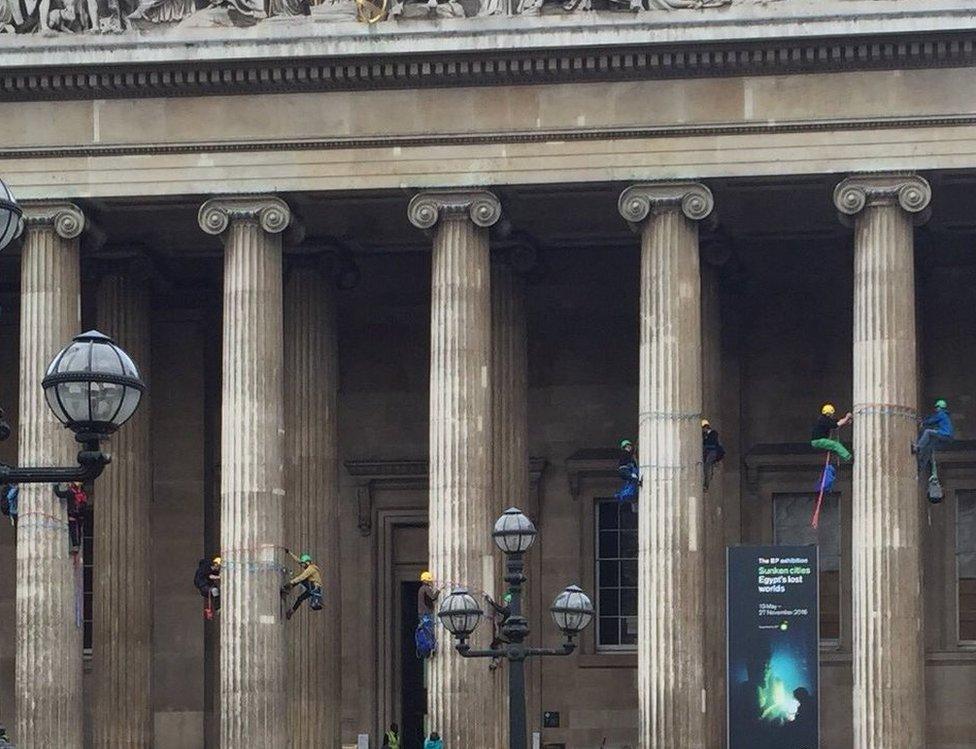
Sixteen activists scaled columns at the London museum
Greenpeace activists scaled the British Museum in protest at BP's support of an exhibition they claim diverts attention from its "polluting" practices.
The protest closed the London museum on the first day of its Sunken Cities exhibition, about two lost Egyptian cities buried under the sea.
Greenpeace said BP was using the "spectacular" show to clean up "the polluting realities of its business."
BP said it was proud to have partnered the museum for 20 years.
The oil giant has declined to comment specifically on the protest.
Latest updates on this story and other news from London
Greenpeace said its activists had rebranded the exhibition "Sinking cities" to highlight climate change.
Shortly after 10:30 BST they unfurled banners bearing the names of places affected by flooding, such as New Orleans, Manila and the Maldives as well as Boscastle and Hebden Bridge.
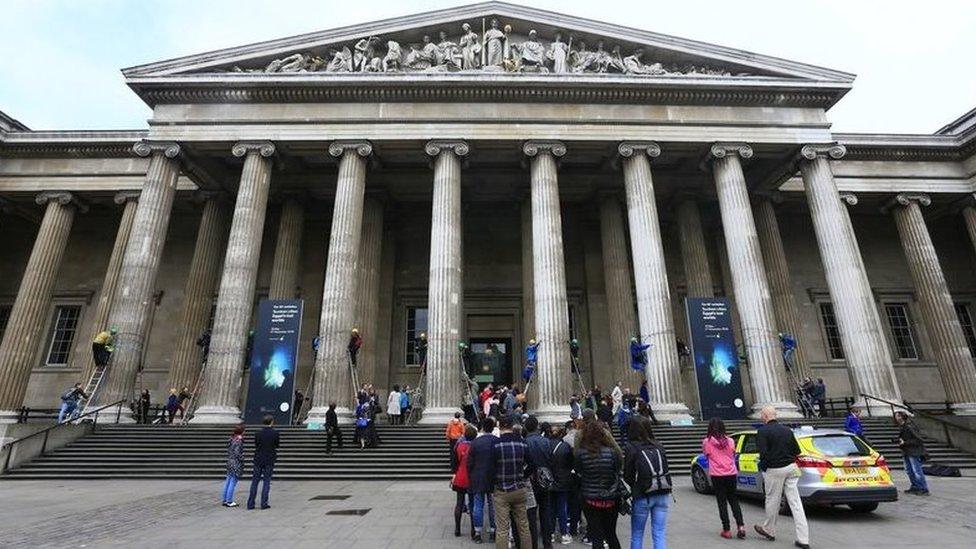
A spokesman said: "We're here today taking a stand because of the irony of an oil company sponsoring an exhibition whose name practically spells out impacts of climate change. What were they thinking?"
Activist Elena Polisano said BP was "responsible for one of the worst oil spills in history" and was committed to digging up and burning more fossil fuels.
She said: "We know that the deal between the British Museum and BP is currently being negotiated inside and we're asking the museum to drop BP."
Police led the final Greenpeace activist away from the museum at about 14:15 BST but their campaign banners remained hanging from the columns.
A spokesman for the museum said it had been temporarily closed for safety reasons, and it hoped to be able to reopen shortly.
A BP spokesman said: "BP has a long history as a major supporter of arts and culture in the UK and we are proud to have partnered the British Museum for 20 years, supporting significant exhibitions such as the new Sunken Cities exhibition."
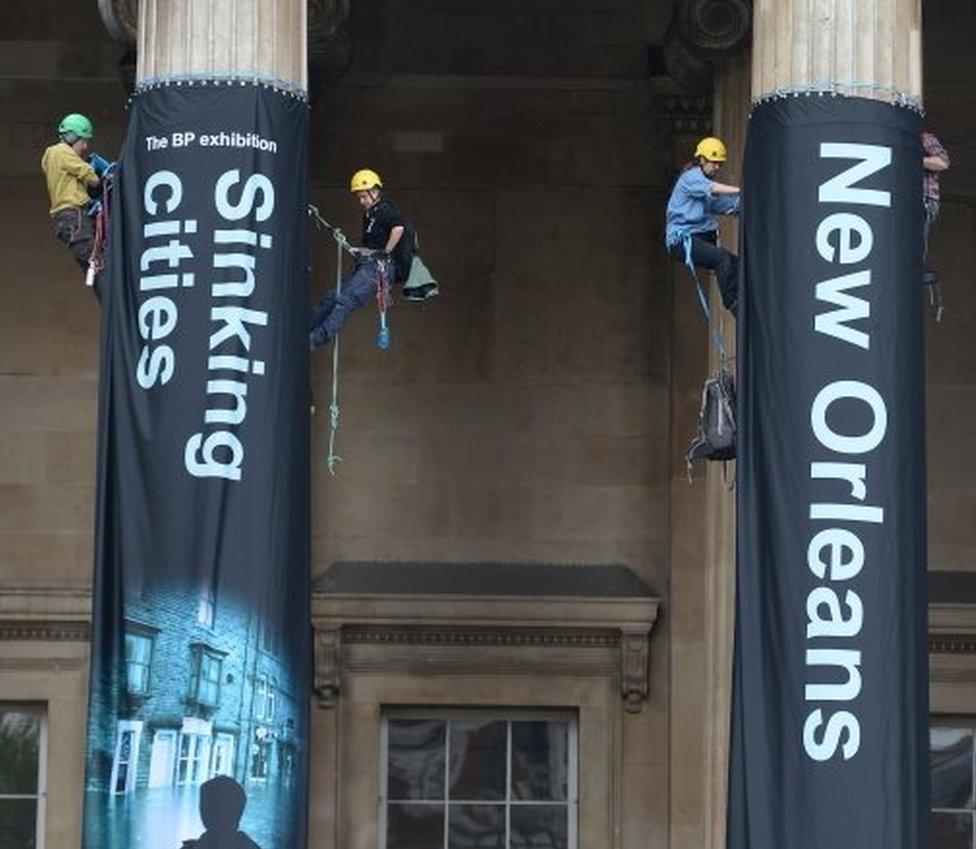
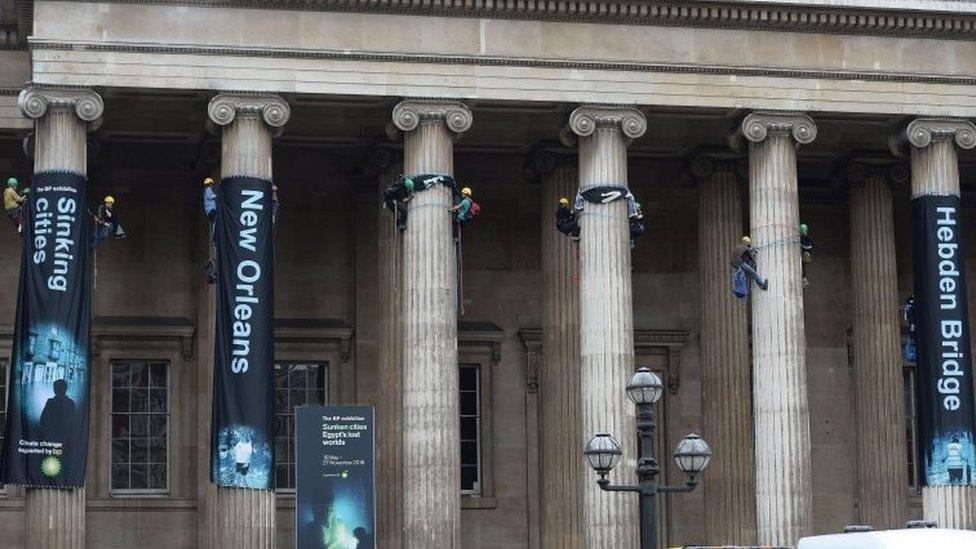
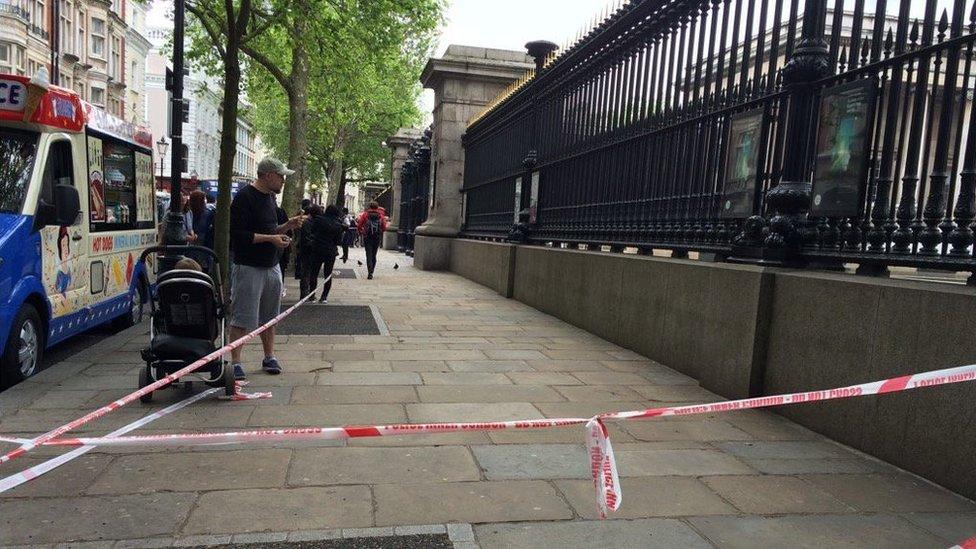
The British Museum was temporarily closed while police dealt with the Greenpeace activists climbing on the building
- Published17 May 2016
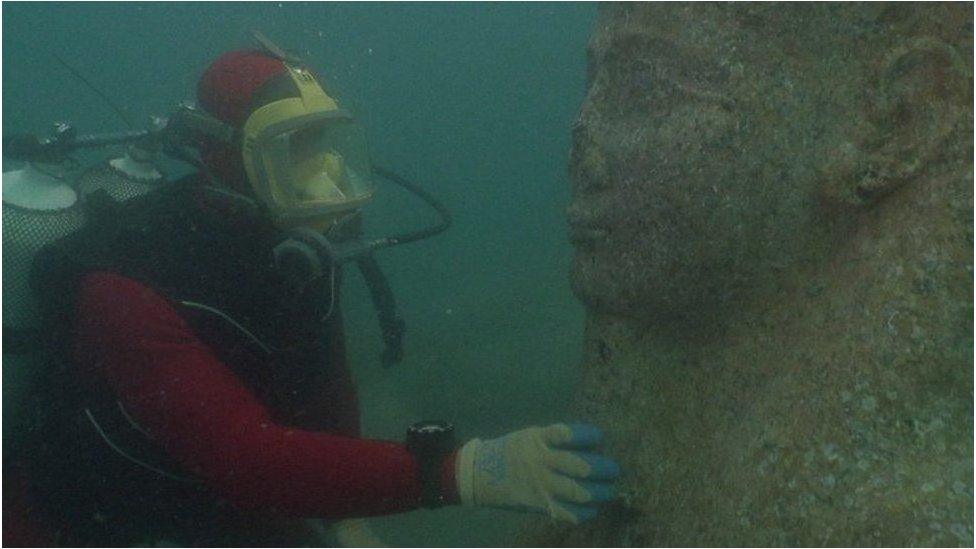
- Published18 April 2016
